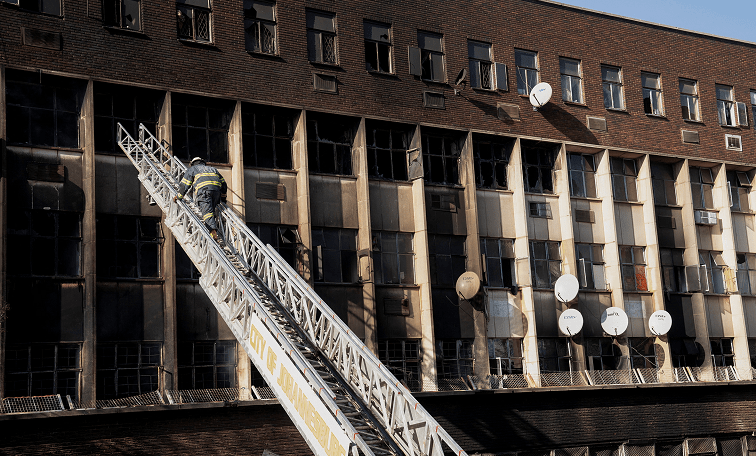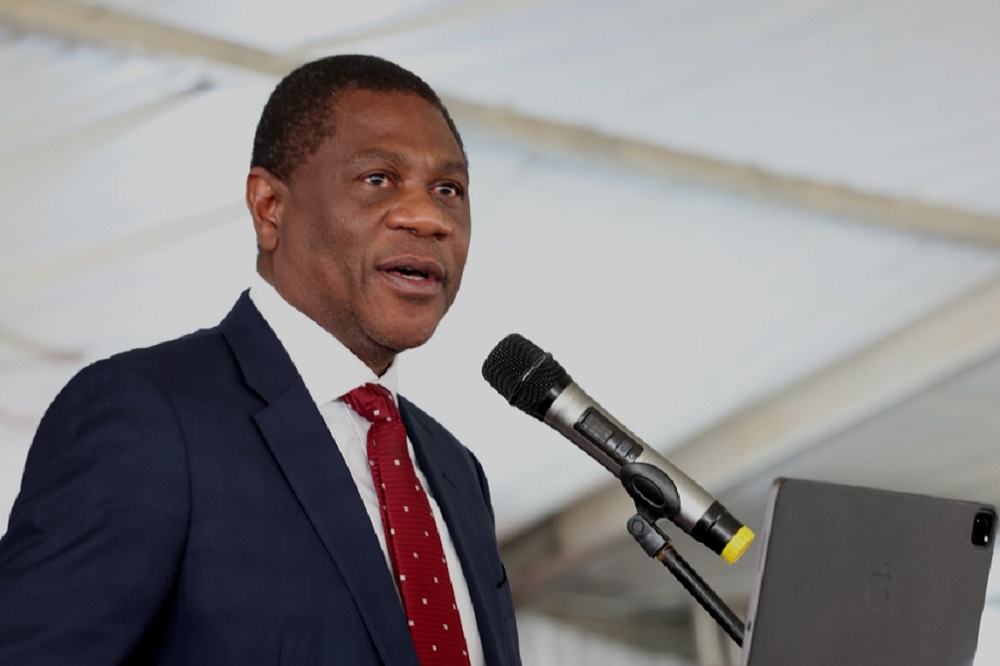-
A firefighter works at the scene of a deadly fire which occurred in the early hours of the morning in Johannesburg, South Africa, August 31, 2023.
The Khapempe Commission has heard that there are tenants that pay rent to occupy dilapidated and hijacked buildings in the Johannesburg inner city, however, the money never reaches the municipality.
The commission is looking into the Usindiso building fire that claimed the lives of 76 people in 2023.
On Thursday, the commission focused on the role of the city when it comes to abandoned and hijacked buildings.
City of Johannesburg Manager, Tshepo Makola, has testified on the City’s role and interventions in addressing challenges, which include dilapidated and hijacked buildings in the CBD.
Socio-Economic Rights Institute (SERI), legal representative advocate Jason Brickhill asked Mokola about landlords who allegedly collect money from tenants, but never pay the municipality for services.
Brikhill: Mr. Makola, we’re trying to deal with the situation where the owner is not present. The owner has disappeared, abandoned, can’t be located or is not playing an active role in the building for whatever reason? What you do have are occupiers who engage the city. Is there any reason why those occupiers cannot make an undertaking to the city to be collectively responsible for the account subject to whatever rebates and subsidies they are entitled to in terms of the ESP?
Mokola: I suppose … would have to look at that case by case. Because even if they were to agree that they collectively are going to pay, they still have to pay a single account because there is only one account all located to that property. So, they may decide they form a resident association, they collect the rent, but that rent will still be paid into a similar account that belongs to the entire property.
Mokola says while the “residents” are paying rent, they are not pay the right people.
“We go back to the owner of the account and the owner of the account is the owner of the property. The fact that the residents themselves are able to pay as we have already looked at that, they may not be paying that right person?”
Brickhill: And that’s the difficulty, isn’t it? Because the owner may not have applied for the ESP or requested those rebates at all. So, the owner will have been charged on the ordinary basis without any rebates, and yet there are people living in the property who would be entitled to the services and rebates?
Mokola: I guess that’s the debate.
Mokola says the broader issue of affordable housing and urban management requires a comprehensive approach, including the Bad Building Strategy and Inner City Rejuvenation Strategy.
The city’s annual budget is R80 billion, with R2,7 billion allocated to Ichip, a five-year programme for affordable housing.
Mokola says the Bad Building Strategy, targeting 74 buildings, is aimed at addressing the affordable housing challenge.
Brickhill: The challenge of unsafe conditions lack of affordable housing in the city is far bigger than the 74 buildings.
Mokola: That’s correct. I agree with that, chair. We also refer the commission to the inner city to reach … the nation revitalization, which moves in tender with the bad building, so quite alive to the fact that you can’t just deal with bad buildings as a challenge. Because that’s not your main source of your problem. That’s just a symptom of a bigger issue and management program that we need to be implementing and that you find in the inner city rejuvenation strategy in line with the bad building focus.
Oupa Nkoana, Executive Manager of the Johannesburg Development Agency, will be testifying on Friday, on the City’s social responsibility to relocate occupants to temporary relief accommodation.





